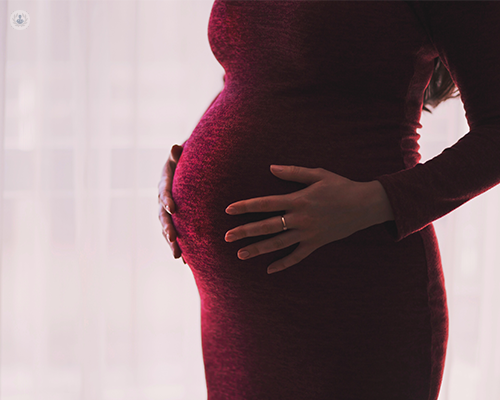Women and epilepsy (part 2): pregnancy, breastfeeding and safety
Written by:There are extra considerations for women with epilepsy while undergoing motherhood. However, this by no means implies that women with epilepsy cannot have a positive and normal experience during pregnancy, breastfeeding and life as a new mum. Professor Walker is a leading UK neurologist and researcher in the field of epilepsy who has worked with many women on the management of their condition, and in this article, he shares his knowledge and expertise.
Click here for part 1 - Women and epilepsy: hormones, periods and contraception

Can a seizure while pregnant affect the baby?
Experiencing an epileptic seizure during pregnancy poses only a small risk to the baby. On the other hand, convulsions (particularly repeat convulsions) or big seizures may cause a serious risk to the baby and to the mother. For this reason, it’s highly important to have epilepsy under control during pregnancy.
Changing or coming off medication while pregnant in an unsupervised fashion risks severe seizures which increases the risk to the mother and baby. To avoid seizures, it’s recommended that women discuss changes in medication with their neurologist before pregnancy. Folic acid before becoming pregnant is also recommended to reduce the risks of antiseizure drugs on the baby.
Will epilepsy drugs harm the baby?
A lot of drugs for epilepsy slightly increase the risk of major foetal abnormalities, such as cleft lip and/or cleft palate and cardiac problems. With most drugs, this risk is only increased by a very small amount, from a population risk of about 1 out of 100 babies being affected to a risk of about 2-3 out of 100 babies.
However, growing evidence suggests that one drug, sodium-valproate, can have quite a marked effect during pregnancy with an increased risk of up to 10 per cent for major foetal abnormalities depending on the dose. However, valproate is also commonly associated with:
- Spina bifida
- Autism
- Learning difficulties
Furthermore, a baby’s exposure to sodium valproate can result in a lower IQ. These risks are dose-dependent. Therefore, taking this drug during pregnancy is currently advised against, and should only be used in the lowest possible dose when there is no other suitable drug.
Risks of epilepsy drugs in breastfeeding
Most epilepsy drugs are minimally excreted in breast milk. Therefore, for most drugs, there is no reason to advise against breastfeeding. Having said that, the mother must check that their drugs are in this safe group.
Safety regarding seizures around the baby
It’s beneficial for mothers to be extra wary of safety around the home once the baby is born. This is because there’s an increased risk of seizures due to stress and sleep deprivation. A few considerations are:
- For the mother not to bathe the child on her own in case she experiences a seizure while doing so.
- Having a pushchair with an automatic brake to stop itself if the mother lets go due to a seizure.
- To change the baby on the floor. If a seizure occurs, the baby won’t be left unattended on a high surface.
- To have the baby strapped to the mother rather than her holding it. If a seizure were to occur, the baby wouldn’t be unsupported and dropped.
Professor Matthew Walker is highly skilled in neurological disorders, including epilepsy. In 2013 he received the Ambassador for Epilepsy award from the International League Against Epilepsy. View his profile to learn more and to book a consultation.


